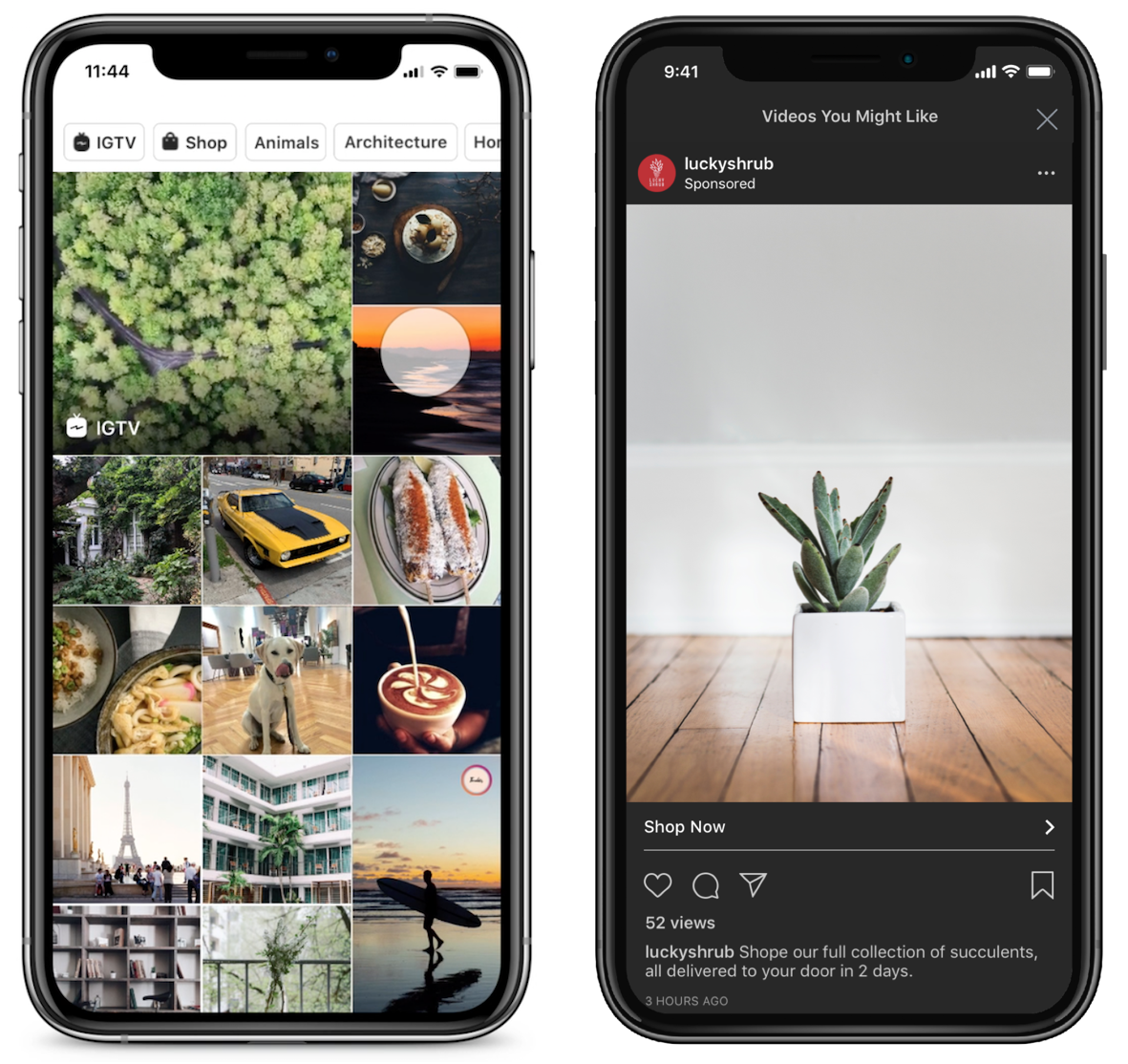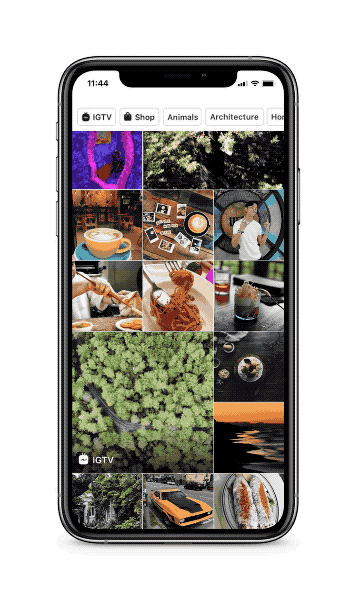Facebook squeezes money from Instagram with new ads in Explore
Half of Instagram’s billion-plus users open its Explore tab each month to find fresh content and creators. Now the Facebook-owned app will do more to carry its weight by injecting ads into Instagram Explore for the first time. But rather than bombard users with marketing right on the Explore grid, Instagram will instead only show ads after users tap into a post and then start scrolling through similar imagery.
The move feels like a respectful way to monetize Explore without annoying users too much or breaking the high visual quality of the space. Instagram’s director of business product marketing Susan Bucker Rose tells me she believes the ads will feel natural because users already come to Explore “in the mindset of discovery. They want to be exposed to new accounts, people, and brands.”

Instagram will test the ad slots itself at first to promote its ailing IGTV feature before they “launch to a handful of brands over the coming weeks” Rose says. That includes both big name corporations and smaller advertisers looking to drive conversions, video views, or reach. Instagram hopes to roll the ad format out broadly in the next few months.
Advertisers will buy the slots through the same Facebook ads manager and API they use to buy Instagram feed and Stories space. At first advertisers will have to opt in to placing their ads in Instagram Explore too, but eventually that will be the default with an opportunity to opt out.
Here’s how ads work in Instagram Explore. When you open the tab it will look the same as always with a scrollable grid of posts with high engagement that are personalized based on your interests. When you tap into a photo or video, you’ll first see that full-screen. But if you keep scrolling down, Instagram will show you a contextual feed of content similar to the original post where it will insert photo and video ads. And if you tap into one of the themed video channels and then keep scrolling after watching the clip to check out more videos in the same vein, you may see Instagram video ads.
Instagram describes the introduction as “slowly and thoughtfully” — which makes it sound like the volume of ads will ramp up over time.
Explore was first launched in 2012, some two years after Instagram itself, as a merger of the app’s search and “popular” tabs, with an aim of using algorithms that were informed by your existing interests to give you a new way to discover new people and themes to follow in the app beyond those you might pick up by way of you own social circles. It’s had a few revamps, such as the addition of topical channels and hashtags, and the addition of Stories, the format that has proven to be such a hit on Instagram itself. There won’t be any ads in Stories that recently started appearing in Explore.
But interestingly, through all of that, Instagram stayed hands-off when it came to advertising and Explore. The idea is that the content that each person sees in Explore is individualized, with algorithms detecting the kinds of things you like to show you photos, videos and subjects you might most want to see. Apparently Instagram didn’t want to deter browsing of this content.
On the other side of the coin, this has meant that up to now, individuals and brands have not been able to proactively request or pay to be in anyone’s specific Explore tab — although that doesn’t mean that people don’t game this situation (just Google “how to get on Instagram Explore” and you will find many how-to’s to show you the way).

The move to bring ads into the Explore experience has some logic to it. Even before monetization made its way to Instagram in the form of feed advertising, shoppable links and sponsored content posted by influencers, brands and businesses had started using the platform to promote products and to connect with customers. Instagram says that today, 80 percent of its users follow at least one business on Instagram. Now instead of trying desperately to game the Explore algorithm, Instagram can just sell businesses space instead.
With Facebook’s News Feed usage in danger as attention shifts to Stories that it’s still learning to monetize, the company is leaning more on Instagram to keep revenue growing. But Instagram must be sure not to suffocate the golden goose with too many ads.
Powered by WPeMatico